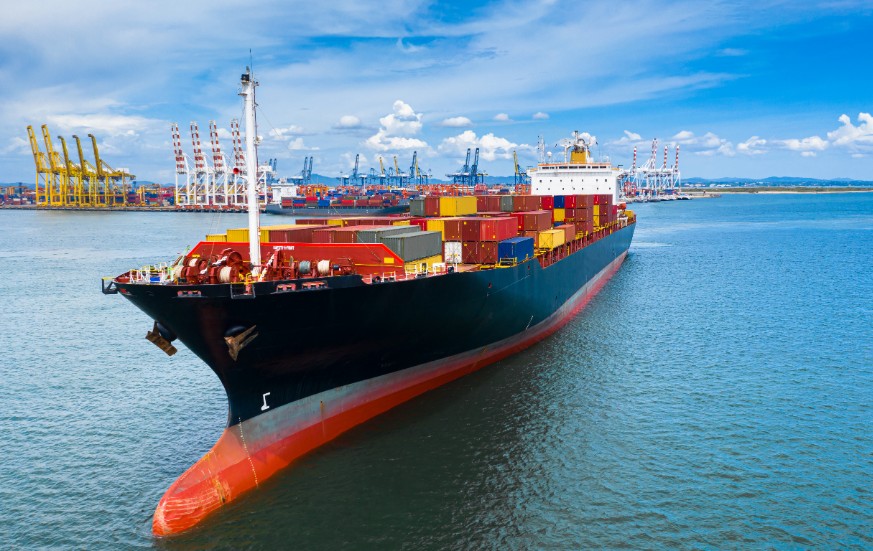
In the IOE&IT Daily Update’s latest round-up of shipping news, we cover a warning for Black Sea shipping, the latest set of restrictions on the Panama Canal and a US federal decision described as a ‘landmark’ for costs.
Black Sea grain deal
Despite the collapse of the Black Sea grain deal, Ukraine claims that ships are still continuing to bring vital foodstuffs out of its ports.
Last week, five more cargo ships passed through the Black Sea on the way to Ukrainian ports, according to Reuters.
Ukraine’s deputy prime minister, Oleksandr Kubrakov, said 120,000 metric tonnes of agricultural goods were sent to Africa and Europe. Last week, three more vessels completed similar journeys.
According to Kiev, a “temporary humanitarian corridor” is allowing traffic to continue to travel through the disputed waters, despite the collapse of the formal agreement in July.
But the UK’s foreign office has issued a warning that Russia may mine the approaches to Ukraine’s ports and target civilian ships, citing newly acquired intelligence.
The Panama canal
The next two months will be ‘pivotal’ for the Panama Canal, as canal management have brought in more restrictions on shipping traffic in response to delays caused by climate change.
The Panama Canal Authority (ACP) described the next 80 days of the rainy season as “pivotal” for the prospects for 2024, as rain is needed to fill up the canal’s water reserves.
Over the weekend (30 September), the PCA imposed further restrictions, dropping the number of daily crossings down from 32 to 31.
For months, restrictions on the number and tonnage of vessels passing through the waterway have been amped up, as the PCA battles a changing environment caused by climate change.
Last month, the IOE&IT Daily Update reported that the record amount paid for a slot to pass through the Panama Canal had been broken, with commentators saying this could rise further.
Landmark shipping case
Shippers MSC have won a case brought against them over unfair demurrage fees, a decision that could set a precedent for costs in the ocean freight industry.
The US Federal Maritime Commission (FMC) dismissed a complaint brought against MSC alleging that a US$1,000 congestion surcharge was a violation of federal law.
In a ruling that will be analysed by many in the sector, the commission held by a 4-1 majority that the surcharge was not an “unjust and unreasonable” detention-and-demurrage charge.
Tradewinds described the decision as a first-of-its-kind dispute over congestion charges, as this is the first case brought by US maritime authorities under new powers to probe various shipping fees.
Nuclear power for shipping in ‘endgame’ phase
A new phase of testing for nuclear power on board ships could herald the beginning for decarbonised shipping.
Southern Company, TerraPower and CORE POWER have started pumped-salt operations in the Integrated Effects Test (IET) of a new form of nuclear power for ships.
According to a press release, the development is a “major achievement” in the development of Generation-IV molten salt reactor (MSR) technology.
“New nuclear for maritime is now firmly on the agenda for the ocean transport industry as the only solution that can take us to actual net zero. It’s the endgame of our energy transition and with solid progress being made in building a new nuclear technology that actually works for shipping, we see the momentum continuing to build,” Mikal Bøe, president and CEO of CORE POWER, told Splash 24/7.
Nuclear is seen by many in the industry as a way to decarbonise shipping, although there are still question marks.
MSRs could produce no carbon emissions and only minimal waste - no bigger than the size of a dishwasher over the course of a ship’s life. According to Tradewind’s Green Seas podcast, MSRs are also different from conventional reactors in that they do not pose a risk of meltdown if there is a loss of coolant.
However, there are still concerns about what happens if a ship carrying a nuclear reactor has an accident at sea, since this could cause long-lasting damage to the local environment and render the ship unusable.
Kendra Ulrich, campaigns director at environmental group Stand.earth, told Green Seas that she did not see a future for nuclear in powering shipping:
“Out of all the technologies that we could possibly be investing in, nuclear is a bad investment.”


